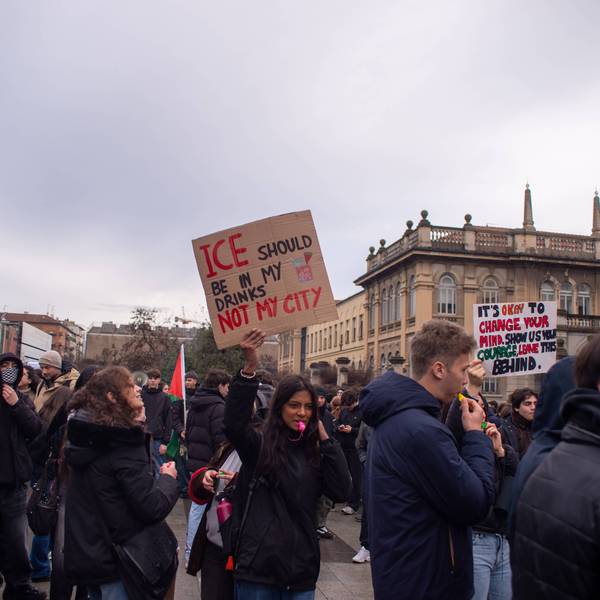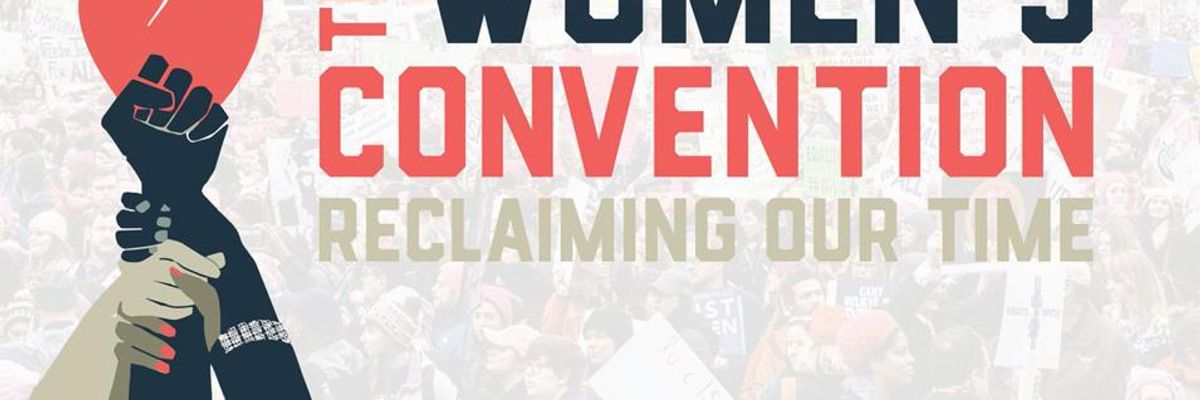Nine months after the Women's March, a sell-out crowd of 4,000 people, mostly women, gathered in Detroit's Cabo Center this weekend for the Women's Convention.
The Women's Convention was organized by the leaders of the Women's March, the January 21 protest that turned became the largest mass demonstration in US history.
Women's March leaders Tamika Mallory, Bob Bland, Linda Sarsour, and Carmen Perez, working jointly with a network of coordinators and volunteers, put together a convention which reflects "a comprehensive, intentional and inclusive process" from grassroots activists, movement leaders, and partner organizations across the country.
The theme of the convention is "Reclaiming Our Time", inspired by Representative Maxine Waters, the 78-year-old California Democrat, whose "reclaiming my time" remarks went viral after the Congresswoman asserted her authority during a House committee hearing in July.
In a statement, Waters said that while speaking at the Women's March, she was inspired by the movement unfolding "millions of women coming together to stand up and fight back."
"With every decision this [Trump] Administration has made in the months since, things have become worse for our country, but our resistance has become stronger and bolder," Waters said. "More than ever, we need all women and allies to come together to collectively reclaim our time."
Watch live here. The full weekend's schedule is here.
"In the lead-up to the march, there wasn't a real vision for what would come next," said Cassady Fendlay, a national spokeswoman for the Women's March. "But after the huge success of the march, we began to hear from women who were hungry for training on how to organize and run for office. So we decided to bring all of these women together in one place for a weekend."
The New York Times reported:
"After the Women's March in Washington and demonstrations around the country, some had questioned whether the efforts could keep up steam, particularly given the wide range of issues being addressed. In the months since the marches, smaller groups, known as "huddles," have met around the country. Organizers said more than 5,000 such meetings had occurred, and pointed to the turnout at the weekend convention as more evidence that a sustained movement had emerged."
"One of the things I was concerned about early on was maybe we'd get numb to this environment we're in and we haven't at all," said Gretchen Whitmer, a Democrat running for governor of Michigan, who spoke at a January march in Lansing, Mich. "This is not just a one-weekend event. This is about giving people tools to stay active and to grow our grass-roots effort."




